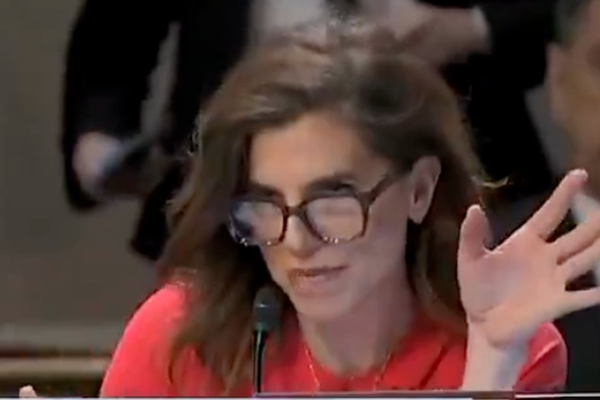
‘I’m really clear on my views and they’ll remain the same. I know because I’m filming this bit at the end,” laughs Liz Carr at the start of this blistering documentary on assisted dying and disability.
With a wink to the camera, Carr eschews the norms of factual programming from the off: there will be no pretence that the actor has come into this debate with an open mind, no emotional journey before announcing a change of heart in the final minutes. Carr – who became disabled as a child with a rare genetic condition – is adamant in her opposition to assisted dying and the risks she feels it poses to disabled people. Timed with parts of the UK edging towards legalising the right to die for terminally ill adults, and with the majority of Britons in favour, it’s clear the purpose of this film is not for Carr to have her mind changed but to change the mind of the viewer.
At the crux of the documentary is what Carr sees as the double standard in society’s attitude to assisted death (or as she prefers it be called, assisted suicide). Looking at a Samaritans help sign on a busy bridge in central London, Carr asks: “If you saw someone on a bridge about to jump, would you support them in the name of choice? No, you’d probably intervene. But if it was a disabled person, would your response be the same? Or would you see it as understandable?”
It’s an important, albeit uncomfortable, question, and just one of the often unspoken prejudices that Carr and a group of activist friends are unafraid to say out loud over the course of the hour (“To want to kill yourself over who wipes your bum?,” one disabled contributor asks, aghast). The opening scene, in which a group of disabled people – some well-known faces – look directly into the camera and recount the times strangers have told them they’d be better off dead quickly serves to sum up the attitudes towards disability that “terrifies” Carr in the context of assisted dying.
The bulk of the documentary is spent following Carr’s visit to Vancouver, Canada, where assisted dying and euthanasia – known as the Maid (medical assistance in dying) scheme – was legalised in 2016, but has since been extended to non-terminal cases who are enduring “unbearable suffering”.
There is humour littered throughout (“I’m going down the slippery slope!” Carr quips as she drives down a ramp), but the subject matter is approached with unapologetic frankness. Perhaps the most affecting scene is when Carr meets a Canadian doctor who has been involved in more than 400 assisted deaths. There is no doubt that the medic has the best intentions and that she has relieved great distress, but Carr is clearly uncomfortable as they talk. When the camera pauses on a black leather recliner in the office on which a number of patients have been helped to die, it feels physically jarring to watch.
Next, Carr meets a moderately disabled man who applied for Maid when he became homeless (he later changed his mind when a crowdfunder paid his debts). Non-terminal cases can be granted help to die in 90 days, we learn. In contrast, social housing waiting lists can take up to a decade.
Sometimes, Carr wisely lets the evidence speak for itself. We hear the automated voice message on the 24-hour Maid hotline that those seeking to die can call. The chipper robotic voice is suitably dystopian. In another scene, Carr flicks through a colourful children’s activity book designed to help infants whose family member dies via Maid. One page goes through the feelings the child might encounter. “Perhaps I’m most concerned about the one that says ‘excited’,” Carr remarks.
Carr makes a compelling and, at times, wickedly funny host. The use of music when she is on screen – punchy, almost punk – is one of several directional techniques used to challenge preconceptions the viewer may hold that she is pitiable or helpless. At one point, Saturday Night Fever plays as Carr rolls to the Houses of Parliament to meet assisted dying advocate Lord Falconer. Elsewhere, Carr skewers the tragedy porn tropes typically used in disability films. “Here’s a shot where I look sorrowfully out a window,” she deadpans.
As the film concludes, Carr meets up with her disabled friends. “We’re living the life that many pushing for assisted suicide are afraid of,” she narrates. And yet when they share stories around a table, what we hear is anything but miserable. It is loving, subversive, even liberating. As one wheelchair user puts it: when his carer helps him wash, he gets his work emails done.
For a documentary about the right to die, this is an unflinching account of the urge to live. Whether the film changes the minds of assisted dying advocates – or whether it even should – will remain to be seen. But Carr has powerfully made her case: a disabled life is no less valuable or rich than any other.
• Better Off Dead? aired on BBC One and is now on iPlayer.







